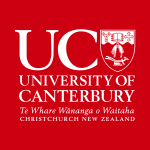About Master Of Forestry Science in University of Canterbury
The Master of Forestry Science will give you a head start into forest management, governance, or research at an advanced level.
This degree offers a flexible structure – depending on your goals and experience, you can study by examination and report, examination and thesis, or thesis only. This programme means you can complete a professional master's degree with coursework and a report in two years.
Students enjoy small classes and a wide variety of courses to choose from, ranging from silviculture to advanced IT applications in forestry.
Further study
UC offers a Doctor of Philosophy in Forestry.
Career opportunities
Postgraduate study can bring many career benefits eg, specialist skills and enhanced knowledge, entry into specific occupations, higher starting salary/progression rates, research capability/achievement and evidence of high academic attainment/self-discipline.
Bachelors: No specific cutoff mentioned
- Applicants for the Master of Forestry Science must have a four-year Bachelor of Forestry Science, or other bachelor's degree in relevant subjects, or a Postgraduate Diploma in Forestry
- The standard and relevance of the previous study will be the criteria for selection, and for determining the options available in the degree
- Normally the minimum requirement is a three-year bachelor’s degree from a New Zealand university or a qualification or combination of qualifications considered to be equivalent
English language requirements for postgraduate qualifications
If you want to study towards a postgraduate qualification, eg a Postgraduate Diploma, Masters, or PhD you must have one of the following:
ENGLISH TEST
- IELTS -Academic An average score of 6.5, with a minimum of 6.0 in reading, writing, listening and speaking
- TOEFL iBT -Total minimum score of 90, minimum score of 19 in reading, writing and listening. Please note UC only accepts TOEFL iBT scores from a single test date, not MyBest scores.
- TOEFL PBT - With a minimum score of 575 and TWE with a minimum score of 4.5
- CCEL EAP- Level 2 with a minimum B+ grade
- CAE or CPE- Score of 176 with a minimum of 169 in reading, writing, listening and speaking
- Pearson Test of English (Academic)- PTE with an overall score of 58 and no PTE communicative skills score below 50
- NZCEL- Level 5
University of Canterbury Highlights
| University Type |
Public University |
| Campus Setting |
Urban |
| Establishment Year |
1873 |
| No. of Campuses |
1 main campus |
| No. of Residence Halls |
10 |
| Graduate Job Rate |
89.9% (full time) |
| Research Funding |
Above 600,000 NZD pa |
| Cost of Attendance |
29,550 NZD pa |
| Applications Accepted |
Online |
| Work-Study |
Available |
| Intake Type |
Semester wise |
| Mode of Program |
Full time and online |
University of Canterbury Tuition fee
| Courses |
UG |
PG |
Doctorate |
| Arts |
25,500-30,200 |
29,000-33,800 |
6,749 |
| Business |
28,100 |
29,900 |
7,066 |
| Engineering |
42,000 |
42,000 |
8,130 |
| Science |
32,000 |
34,900-36,600 |
7,062–7,855 |
| Law |
30,200 |
33,800 |
7,066 |
New Zealand Living Expenses
You'll require between $20,000 and $25,000 a year ($380–480 per week) for housing/rent, food, transportation, phone bills, internet usage, and entertainment, in addition to your tuition and insurance fees. The average living expense will be the same for everyone, regardless of their tuition or course price. Please keep in mind that these are only suggestions; the Immigration New Zealand requirement is $15,000 per year including return travel or an additional $2,000.
| General expenses |
Cost
(in NZ dollars) |
| Rent (per month) |
$800–$950 |
| Groceries (per week) |
$100–$150 |
| Gym membership (per year) |
$300 |
| Entertainment (per week) |
$50 |
| Milk (per litre) |
$3 |
| Coca Cola (per can) |
$2 |
| Cup of Coffee |
$3–$5 |
| Lunch from University food hall or campus café |
$7–$12 |
| Local calls made from a cell-phone |
$0.50–$1.50 |
| Taxi - 5 km ride |
$10–$12 |
| Movie ticket |
$10–$14 |
| Visit to doctor |
$45–$85 |
